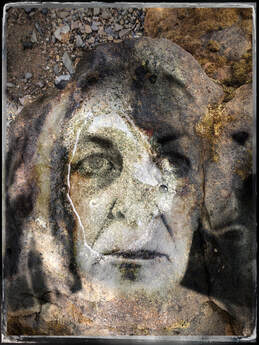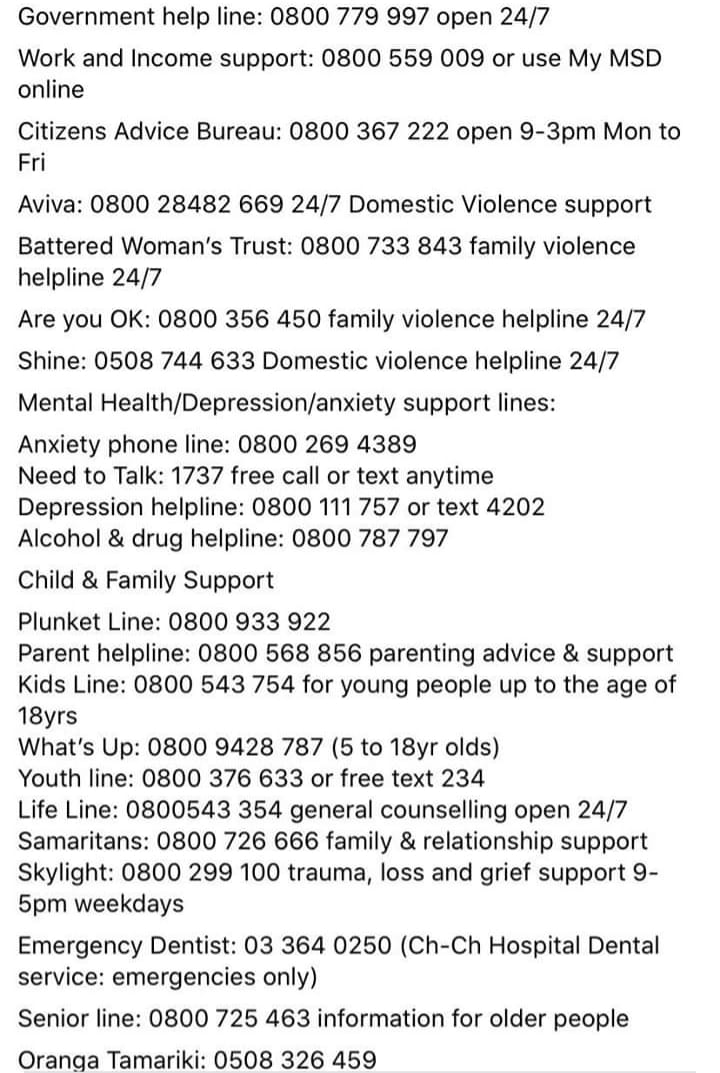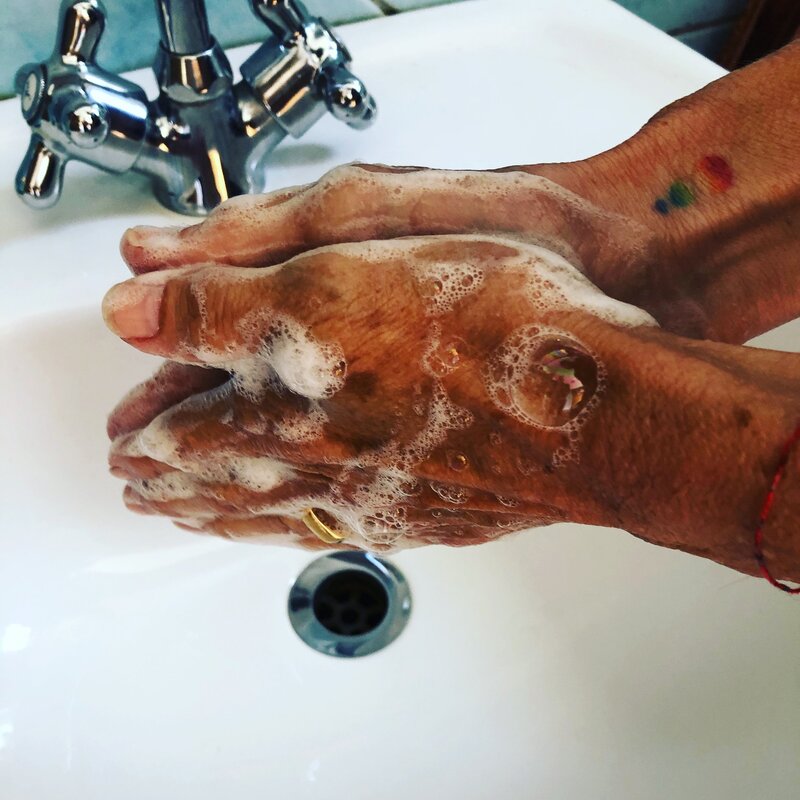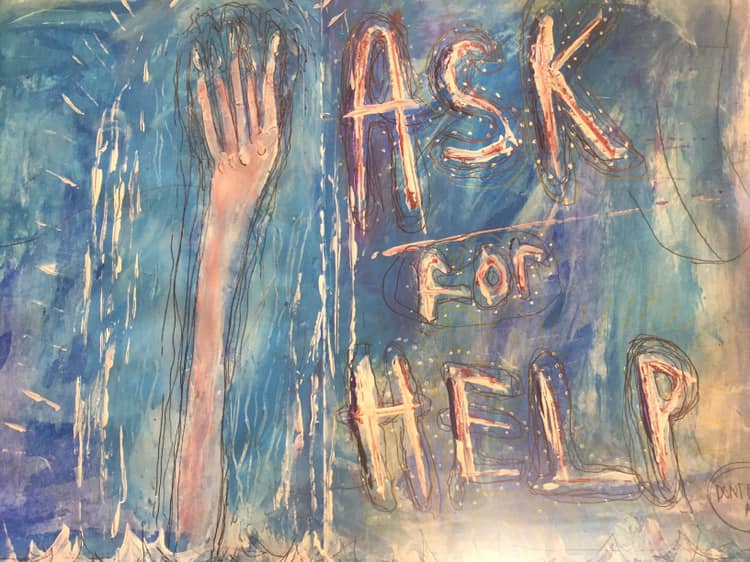|
Here's some thoughts about Polyvagal theory and managing lockdown.
I have been thinking about lockdown and how it seems some people just can’t get their heads around the benefit of staying at home. (stfah) I want to preface this, after first writing about it and being reminded of my immense privilege in living with a roof over my head, food on my table and safe people to cohabit with. The way my social, financial and geographical advantage affect me is immeasurable and I can’t look away from that. People who are not in this position will be pushed into ways of dealing that they might not like, might not be in line with their values or truth. This is an acknowledgement of how privilege impacts hugely on the way we get to navigate this. Let’s look at how this lockdown requirement might land with people. According to Polyvagal theory, where you mostly work from in your nervous system creates your response. Remember this response begins unconsciously. We don’t get to choose where our response originates. People who are acting from their Ventral vagal system which is anchored in the most modern or frontal part of the brain, can take on new information, be creative, think of the collective, draw logical conclusions, be empathetic, respond to change effectively etc. This is a way of functioning that helps you live a connected life; a good way to be. It’s helpful for you and it’s helpful for me if you respond from here. To respond from here you have had to had pretty good parenting, minimal trauma and have done some inner work. People who are acting from their sympathetic nervous system, which is in the mid-brain and not as modern as the ventral vagal system, are likely to be more jumpy, anxious, a little less able to think clearly, easily pushed into wanting to run, or fight. Right now, these people are getting overwhelmed easily and are not able to handle much more than what’s right in front of them. People also might be acting from here that are usually acting from their ventral system because of all the stress they are under from all the unusual things they are having to navigate. Think of the parents trying to work from home with children they are not used to tending to without a break. Think of the people who love their job and contact with others who are bored out of their minds. Think of the people who are worried about loved ones who are struggling and they can’t get to. There’s a lot that is pushing us to react from this part of our systems. You are likely to naturally respond from here if you didn’t get a lot of kind containment as a kid (healthy boundaries, consistent nurturing, etc.) and you have experienced trauma. People who are acting from the most ancient and “primitive” part of their brain, called the dorsal vagal complex, are more likely to be a bit numb. They will be more likely to ignore the information out there about the virus, be unconcerned and think people are overreacting and a bit pathetic. They will be the ones thinking they’ll be right, it’s just a trip to the beach/shops/visit my mates. This part of the brain/nervous system isn’t designed to make you think logically or think of others, it’s designed to make you freeze in the face of threat. It’s like playing possum; “If I just don’t react I will be safe.” would be its motto. Lots of people live in “functional freeze.” They see people who are worried and flustered as weak. They think of themselves, about what will get them where they want to go. They tend to think simply; this works for me and don’t necessarily think of the impact on other people. They shut down response to emotions and worry, so that things like sickness and death are topics they won’t visit. They convince themselves they don’t care, or more accurately don’t have access to their caring. They will also be the ones who feel unable to do anything other than watch a screen and eat. This is not to judge or shame anyone, this is just describing what’s most likely from this way of functioning. These people have had life experiences, mostly from very early on, where they were taught that feelings, especially fear or hurt were not treated kindly. They were taught that to be shut down was what kept them safe. These people were not consistently nurtured, and are likely to have suffered significant trauma. That is experiences that impact them negatively not just car crashes etc. Many of us will be responding from this place (dorsal vagal complex or shut-down) because of overwhelm. Modern western culture trains us to prefer shut-down. But now that we are in lockdown the dysfunctional aspects of shutdown are becoming more apparent. When we look at the community reactions to lock-down and see people flouting these measures, these may be people who find it hard to connect to their own fear, let alone the fear of others. They cannot allow themselves or understand how to be worried constructively, face illness and death with anything more than bravado. They are not able to see how their actions impact on others because their capacity for connection is limited. This is not to say they are bad people but their behaviour does have an impact on us now. We are, as a community, requiring people to think of each other. Your behaviour matters. If you become a source of transmission you put me and my beloveds at risk. Some of them are at high risk. I need you to help me. If you are someone who recognises you are tipping out of your normal function, please find healthy ways to notice and navigate back into a more regulated way of behaving. If you are anxious and jumpy put some music on and dance yourself sweaty, brisk walk around the block, dig the garden, get out a skipping rope. Move your body to release a bit of the pent up zingy-ness. If you are in shut down mode just know that’s a normal response to overwhelm. Do something gently soothing, facetime someone, even if it’s just to talk about the weather; connect! Do something that gives you a sense of achievement. Make something. Do something funny – watch something that makes you laugh and when you are able move your body. This is not an exhaustive list. You know yourself well. “Wisdom is what works “as Dr Estés says. I am writing this to explain, to myself as much as anyone, what I am observing. Find something that moves you out of the state of cut-off-ness and into connection. What you do matters. You matter. And please wash your hands and stfah. edited to add the preface after a kind comment from Miriam about my social advantages in this situation. I want to talk about human Threat response and covid19.
The other day, I listened in dismay to a supermarket worker talk about the hideous behaviour of some people in the shop. The day before, I was waiting in a patient and well distanced line at the pharmacy, when a white man came into the queue and pushed in and started swearing and generally being belligerent. I felt scared. I felt sorrow for the workers and others who are doing the best they can in really difficult and scary conditions and did not deserve that treatment. And I felt aghast for my fellow pharmacy queuers who felt intimidated and upset. And now I am feeling for the angry people. That's not some spiritual bypassy nonsense. That's after a lot of reflection on my distress and leaning into the principles of Somatic Experiencing and the Polyvagal theory. I will attempt my simple understanding of the way it works... here goes... Our nervous systems have developed to respond to a threat in several ways. These all happen unconsciously. Firstly, we try to think/negotiate/create our way out of it (this is the ventral/front or "newest" part of our brain). If that doesn't work, or we have not had good experience using this, we go to the next level (the sympathetic nervous system or more ancient part of our brain.) This part of us is ready to respond to the sabre-toothed tiger. It's the fight and flight part of the brain. If you think you can take the threat on, you will fight and if you think you can outrun it, you will flight (or run). If that doesn't work, or again, you have lived through experiences that have taught you that you don't have a lot of skill with threat, or, in the moment you are overwhelmed, you use the most ancient part of your brain the dorsal/hind-brain at the back of your skull. This is where you freeze or go into shut down. I hope you are still with me. Back to the shouty man in the queue. People are scared. This virus thing is out of our lived experience. (I could go off on a tangent about the lost art of story and how if we had kept alive the stories of the Spanish flu we might have navigated this differently but, I digress.) We have been raised to think we can be the masters of the planet. We have learned to take what we want, when we want it, in the way that suits us. We don't have experience of our own puny place in the real scheme of things except for bushfires and tsunami and earthquake and something in our psyche convinces us that was a one off and we move on with the relentless entitlement that seems endemic in our culture. At the moment, we are faced with this unfamiliar threat. It’s a threat that we can't see, it's minute and yet powerful, that is taking people out despite their status, power or wealth; aka all the things we have been taught to believe, matter. We are all having to do things we don't want to do, live a way we don't want to live. We are having to curtail, cut off, submit. We don't like it. It's a threat. And that threat makes us respond. Remember this is not conscious. Some of us are to the threat responding from our ventral system. We are connecting, being creative and community minded, building new ways to stay safe and strong. This doesn't mean we are not scared or feel the loss. We just respond by learning, connecting and being thoughtful and creative. To respond like this we have had to have lived pretty safe, well supported lives, be well resourced, have done some inner work to resolve trauma etc. Some of us are responding from the “sympathetic” part of our systems. We are wanting to run and we can't. In Aotearoa NZ right now, because lockdown for a month, this means just that, no hanging with whanau, sauntering and jaunts to the beach or the bach or the fishing trip. We are reacting from the fight part of the sympathetic response. In many cases this is a well-worn path honed by finding relief in intimidation and aggression; if you roar loud enough most things will run away. Sometimes the fight response is heightened as a result of our own trauma and learned behaviour. And, right now, many people who otherwise wouldn’t, are acting from this fight response through stress and complete overwhelm. We reach this place of being driven anger in an attempt to get the threat out of our faces. These are the people who are angry in the supermarket and in the pharmacy queue. They are also the usually mild mannered person who snapped at us, the mother with her kids on lockdown losing her cool, the father crying in the car before he comes inside. Does it excuse anger and intimidation? No. But knowing there are people out there who are likely to be on a short fuse is important. How do we manage this? We are wise to pay acute attention to our own feelings, not deny or avoid. We can try to be self aware, self reflective. We can try to build safe connection that will allow us to talk things out. This will often help us move into the frontal part of our brain, bring it back on line. We can run or do exercise to release some of the pent-up fight/flight response we are all feeling. We can shout into a pillow. We can rip up paper (not toilet paper coz that's gold apparently - an attempt at humour). We can dig the garden. Movement will help us mitigate that flight/fight response. All things we can feasibly do in lockdown. We have a responsibility for taking care of ourselves. That means navigating things with care. Trying to pay attention to how we are feeling. Asking for help. Taking breaks. Talking to people. Being kind to ourselves. Noticing something that is growing, like a pot-plant, or changing, like clouds. None of which is encouraged by modern western culture (as you will know if you have been following my work for any time at all!) #smashthepatriarchy. There will be many people who are unable to do this moderating or mitigating. Who are angry and lashing out. If you are one of those people or stuck in quarantine with one of those people, please contact agencies listed below for support. You deserve to be safe. As for the third response from the dorsal part of our brain? That's shut-down. That's when we can't think, or feel. When we curl up. And sweet human, we need you with your heart light on to make a way in the darkness. If you find yourself in shutdown, please rest. Please ask for help. Please be gentle and please return. Many people use alcohol and substances to maintain this state and it's going to be harder to isolate and continue with this, again if you can please get help. Not everyone has the resources to cope during this time. Not everyone can just get through. Not everyone has the capacity. So, dear one. When we tend to ourselves kindly and with understanding and generosity we are more likely to be able to navigate our way back to the ventral part of our brain, think cogently, understand, learn, be creative and connect with others. When we drive ourselves beyond our capacity we are less able to hold that place of thought and conscious decision making. We respond to threat in ways we are not proud of. And some of us are doing the best we can and it's not enough for us to cope. So, what am I trying to encourage you to do? If you have the resources; be kind to yourself. If you don't please ask for help. |
Authorjane- creativity activist, synchonicity celebrator, conduit for love. Archives
February 2022
|




 RSS Feed
RSS Feed